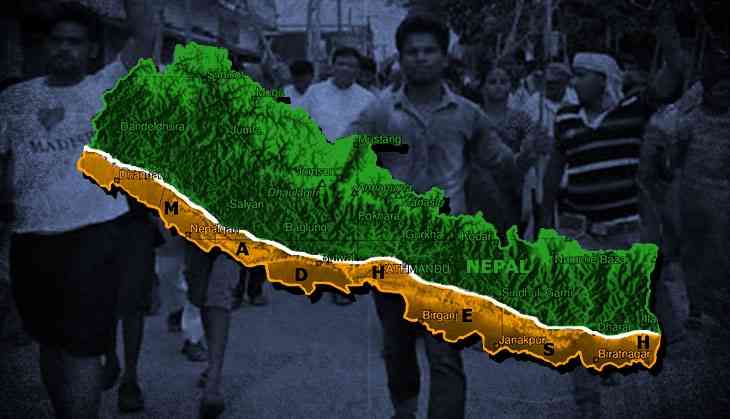Conflict again in Madhesh. What it means for India

After a lull that lasted a few months, conflict has erupted once again in Nepal’s Madhesh region that borders the Indian states of Bihar, West Bengal and Uttar Pradesh. Ever since the police shot dead four United Democratic Madheshi Front (UDMF) protesters and injured dozens of them on 6 March 2017 in Rajbiraj municipality, the situation has been quite tense throughout Madhesh region.
The UDMF is the alliance for four mainstream Madhesh-based political parties, including the Terai Madhesh Democratic Party.
Despite the imposition of a curfew, the situation is yet to be brought under control in Rajbiraj and the adjoining regions of Saptari district where the incident of killing of unarmed protesters took place.
Rajbiraj lies at the distance of 192 kilometres south-east of Kathmandu through the BP Highway and is 17 kilometres from the Nepal-India border at Kunauli, Bihar. Reports of vandalism, arson and rallies have been pouring in from different parts of Madhesh region in protest against the incident.
All downhill
The situation turned to be ugly in Rajbiraj when the Communist Party of Nepal-Unified Marxist-Leninist (CPN-UML) leader KP Sharma Oli organised a rally in Rajbiraj on 6 March in course of his Mechi-Mahakali campaign in favour of the local elections that are scheduled to be held on 14 May in the country.
The UDMF leaders have been opposing these elections from the beginning. This is because the Madhesh region has been given only 34% share in the total 719 Village Councils/Municipalities, though over 50% of the population resides in this region.
The clash between the two forces i.e the CPN-UML and UDMF was a foregone conclusion. So when Oli tried to challenge the local sentiments through the rally, the UDMF workers tried to obstruct it. This was enough for the security forces to target not only the Madheshi protesters but also the innocent people.
It has been largely felt that security forces crossed national and international standards of use of force in this particular incident. Their racist ire was exposed as they fired straight at the head or chest of the protesters. They even entered homes of the local people and came down heavily on them.
Even the poor home minister of the country, who happens to be a Madheshi, could do little to stop this brutality.
In protest against the incident in Rajbiraj, the entire Madhesh region has been under the grip of a general strike. Most of the industries, educational institutions, health facilities and transport services have been crippled.
Lash-back & ultimatums
Several national and international bodies condemned the Rajbiraj incident. Both the United Nations and the Embassy of United States of America in Nepal expressed concern over it. The Election Commission in Nepal fear that the incident could affect the local elections. Certain political parties have also asked for conducting a high-level probe into the incident to calm the situation.
In the meantime, the UDMF submitted a seven-day ultimatum to Prime Minister Pushpa Kamal Dahal giving him seven days to meet their five-point demands, which includes:
– The withdrawal of the date of local elections for 14 May
– Amendment of the Constitution in the Parliament by addressing the Madhesh issues
– Punishment to those responsible for the incident in Rajbiraj
– Declaring those killed in Rajbiraj as martyrs and compensating their families
However, there is a possibility that the government will address the core demands of the Madheshis, like the amendment of the Constitution, to their satisfaction. A failure to do so would give the UDMF enough ground to withdraw its support from the government. It is likely that the government in Nepal will turn into a minority if the UDMF withdraws support.
First published: 9 March 2017, 16:51 IST
